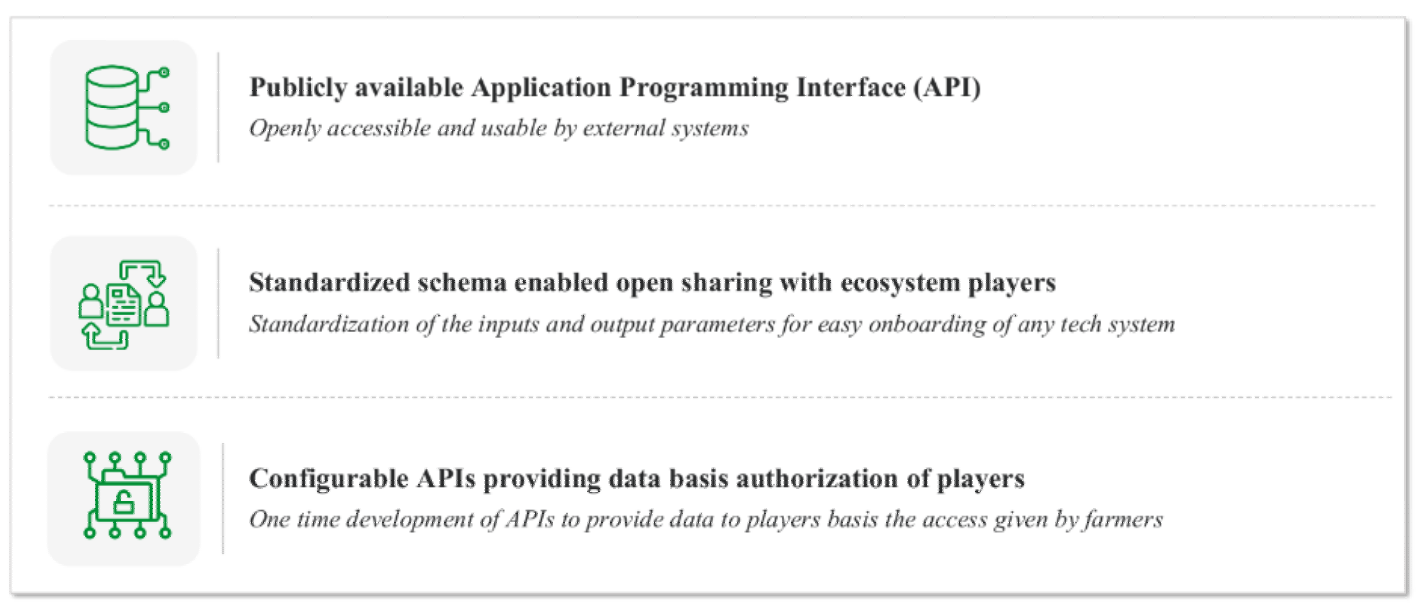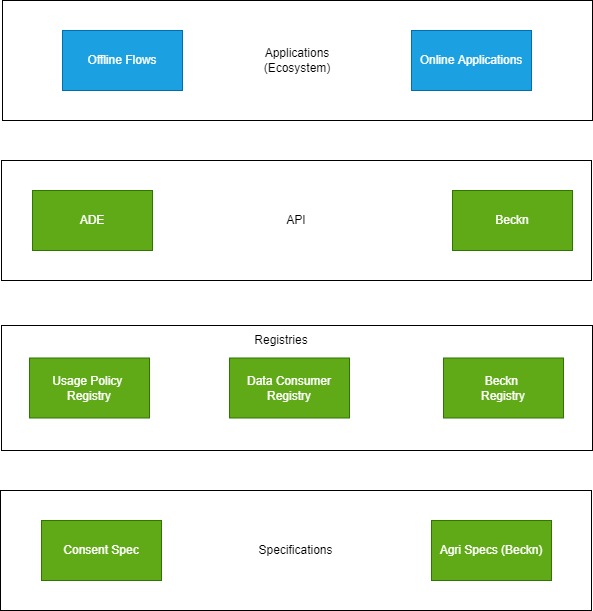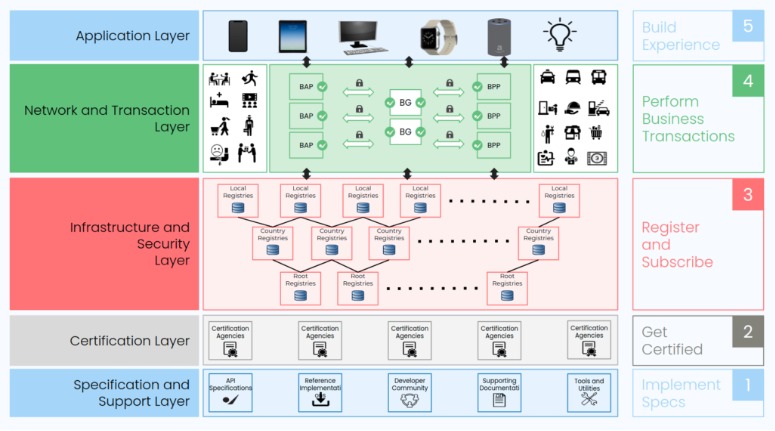Unified Farmers’ Service Interface (Decentralized network)
UFSI is envisaged to play a role comparable to UPI (Unified Payment Interface) in the space of digital payments. While UPI has transformed payment systems by optimizing the underlying processes and providing a set of APIs for identification, authentication, and authorization, UFSI is required to handle multiple types of transactions in the digital agriculture space through a set of open specifications and standard APIs. This set of open specifications is known as Beckn protocol.
Beckn is an open protocol that allows local businesses across any industry to be discovered and engaged by any beckn-enabled application. Beckn protocol helps businesses co-create solutions for the masses seamlessly, by combining services of any form or provider. Beckn defines contracts or protocols for communication between entities sharing information.
Use Cases
- Creation of open and configurable APIs for farmer data usage
- Transactional APIs for service discovery, order, fulfillment, and post-fulfillment
- Based on the data and transactional APIs, registries will be created for providers and cataloged products
Architecture
UFSI is a decentralized network with interoperable protocol specification which includes,
- Open and configurable APIs to help leverage farmer data
- Transactional APIs for service discovery, order, fulfillment, and post-fulfillment
- Registries created for providers and cataloged products or services
Three parts of UFSI

Architecture

- Agri Data Exchange (ADE) - providing a safe and secure way for consent driven access of farmer data
- BeckN - a set of specifications consisting of APIs, data models, reference architecture, transaction mechanisms, and global standards that enable the creation of decentralized network
- Usage Policy Registry - a registry created by the data governors to exercise usage control. A usage policy is a PDF artifact generated by the governing authority for access to data. This allows for storage of policy in a registry for legal requirements
- Data Consumer Registry - a registry which ensures every data consumer is registered and provided with a unique token, which is in turn used to identify a consumer
- BecN Registry - Certification on a Beckn-enabled network works by listing the network participants on the registrars of the certification authority. Any network participant listed on an open registry is implicitly assumed to be certified
